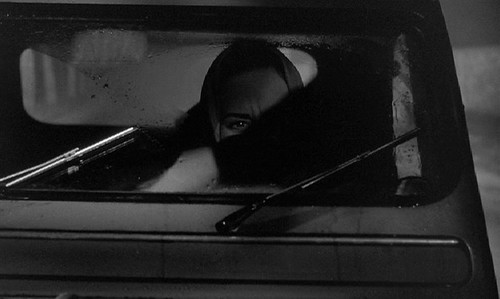
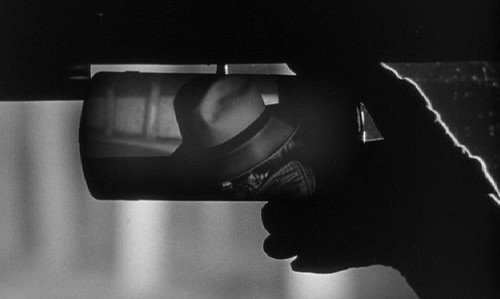
So here I am in Chicago, Illin'-ois. I began this blog about exactly a year ago when I was in a similar state of aimlessness (er, joblessness), so although I'm currently on the hunt for another dead end job, I'm looking forward to some empty hours that I can use getting lost in the cinema.
I discovered this title, as I am wont to do, by performing a Google search for "50s sci-fi" or the like. What I was really looking for was some good old American camp, but I ended up finding this haunting piece of French film instead. It's from 1959, but according to my Criterion insert, Franju operated on a parallel trajectory from the New-wavers. Still, to me, it seems like the ground-breaking nature of this film might put him in a similar arena. Like Godard, Georges Franju had an affinity for American films. He just happened to like our gory B horror films, instead of Humphrey Bogart noir pictures.
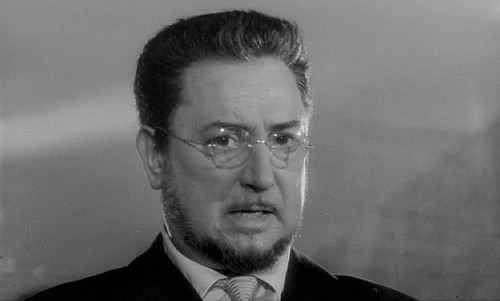

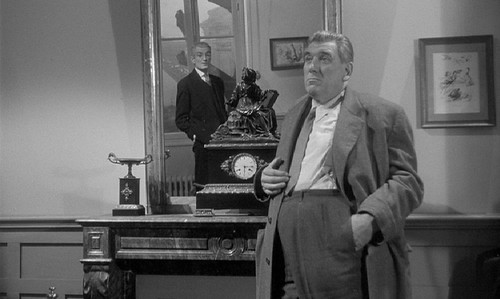
The premise caught me immediately. When Christane's (Edith Scob) face is mutilated in a car accident, her scientist father, Dr. Genessier (Pierre Brasseur) attempts to build her a new face through a procedure called "heterograft," a skin graft. He and his assistant, Louise (Alida Valli) fixate on girls who share similar features to Christiane, ensnare them, and cut off their faces in a grotesque procedure, which the film portrays in its entirety. No matter how numbed modern filmmakers are to blood and gore, the mutilation of the human body is still a subject that holds a morbid fascination. You might even call this proto-torture porn. Unlike in Diabolique, the shock-horror in this film does not feel dated.
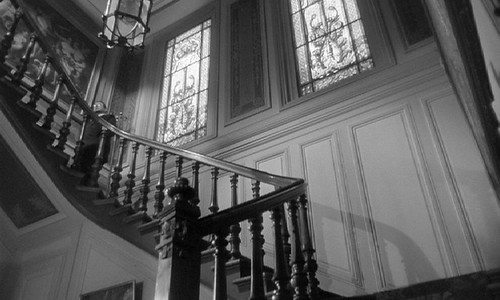
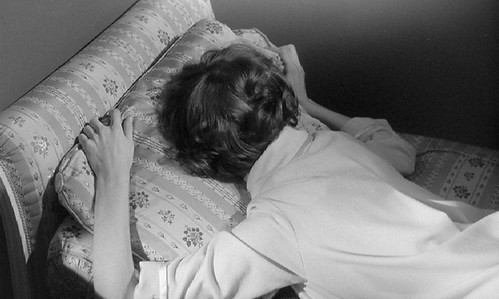
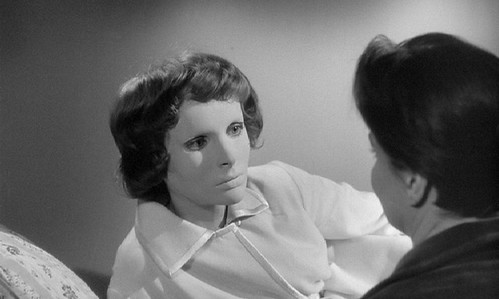
What ensues is a haunting parable of identity loss, and patriarchal domination. We never have a chance to see Christiane's true face. We merely see the back of her head, her dehumanizing mask, and her new face, which, as the viewer is vividly aware, is not her true face. From the outset, the viewer will have difficulty figuring out what to make of this character; she is unreal. To underline this, in the first half of the film, Franju plays around with mirrored surfaces. In particular, Genessier is constantly surrounded by reflective surfaces. The mirror represents self-identification, something that Christiane refuses, because she is so tortured by her mutilated appearance. If you want to think about it in terms of Lacan's mirror stage, she is unable to recognize herself as being a separate entity. Thus, identification of the Other becomes difficult. On the other hand, Christiane's existence might represent one that requires no surface--the soul. This seems to be refuted, though, by her slow descent into madness. Still, the film seems to raise the question of what it is that makes the real. Is it surface, or something more? Is the surface related to what lies beneath, or is there nothing beneath the surface at all? At times it seems as if the surface is the only part of the Other we can ever truly access.
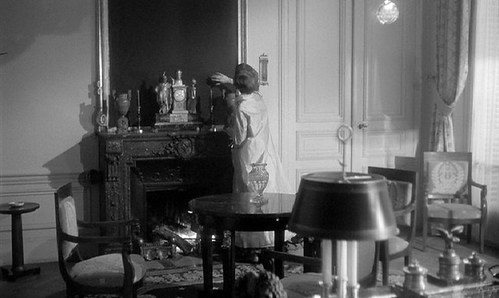

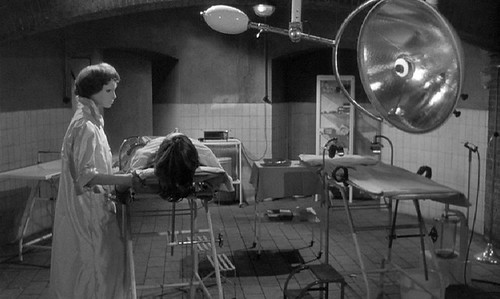
I was really intrigued by the scene represented by the above photo, in which Christiane wanders phantasmagorically around her father's laboratory. It is interesting to me that Christiane, in the beginning, seems to accept her father's evil acts. She does nothing to release Edna (Juliette Maynial) when she encounters her. It almost seems as if she does not recognize that they are separate entities. Edna's face is her mirror, her new identity. In this scene, Christiane removes her mask and leans over Edna's body, peering into her face as if she is viewing her own reflection. (What Edna sees of Christiane's face is represented in the blurred still below).
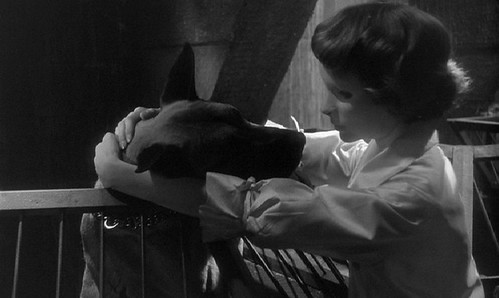

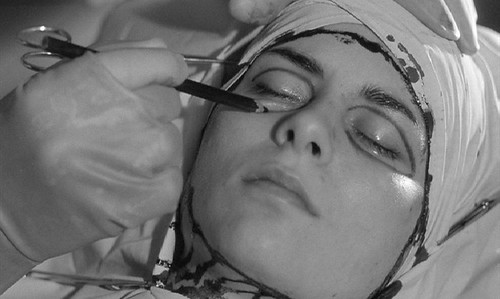
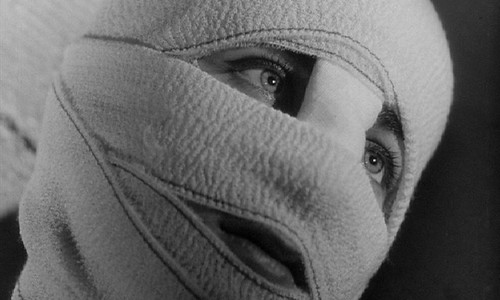
Another of my favorite moments is represented below--a demonstration of the interchangability of the women in the film. The woman centered between the two detective is eventually used by them as bait, successfully, although they are never aware of it. I like the visual comparison of the back of the head (an image that echoes the earlier scene) and the photograph of the missing girl on the desk. Although Genessier is the main patriarchal force, all of the men are implicated, especially by their knowing substitution of one woman for another, simply because of their shared visual characteristics--blonde hair and blue eyes.
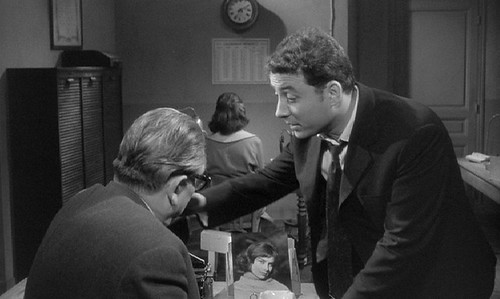
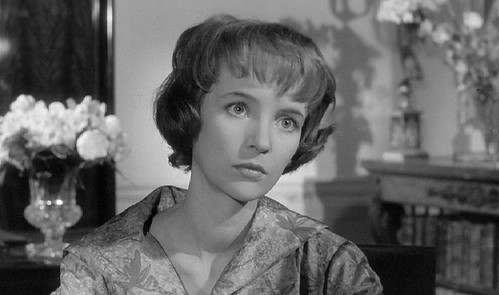
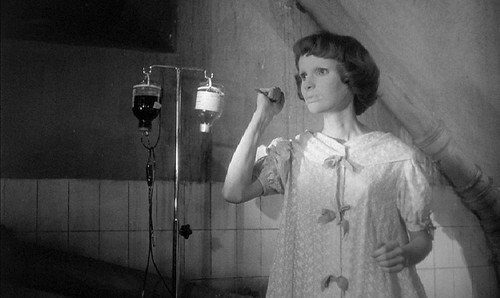
I hardly need to articulate the patriarchal notions inherent in Genessier's actions, but of course, I will anyway. This is a man who controls the women in his life, seemingly for his own benefit. The car wreck that ruined his daughter's face was an accident, but you are sort of left to wonder whether it wasn't intentional. As his daughter sourly notes, he now has a human guinea pig on which to practice. His assistant, too, is essentially one of his creations. He created the face she wears. By his invasive tactics, he has robbed both of their identities, and asserted his power over them. On a side note, the film also aligns patriarchy and scientific progress.
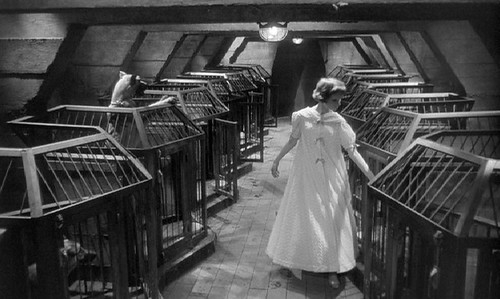
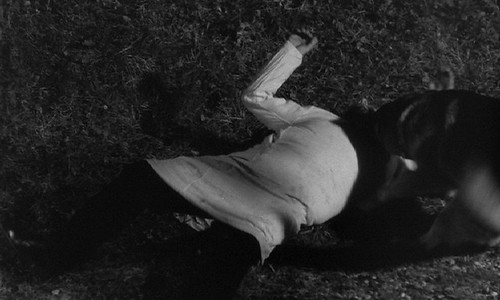
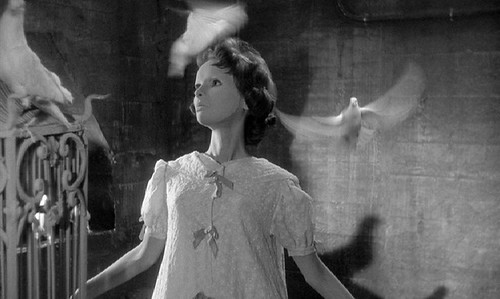
After a relatively lengthy digression from the interesting part of the narrative, we return to Christiane, and the situation quickly devolves as she strikes back against the forces that have stripped her of her sense of self. At this point, Christiane is really nothing more than the store mannequin that her appearance suggests. (Which is pretty interesting, actually; a mannequin's purpose is to be a non-entity, so you can imagine yourself in its place. Masticate over that, as you will). As Christiane wanders off into the night, she seems like a specter doomed to wander the earth forever. I felt as if she might disappear into thin air, the way the photographer does at the end of Blow-up.
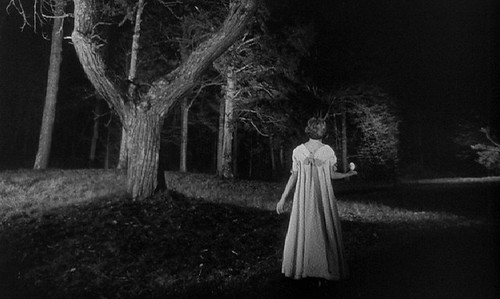
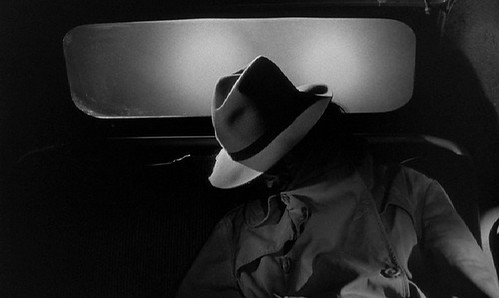

No comments:
Post a Comment